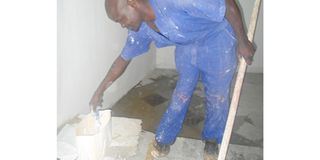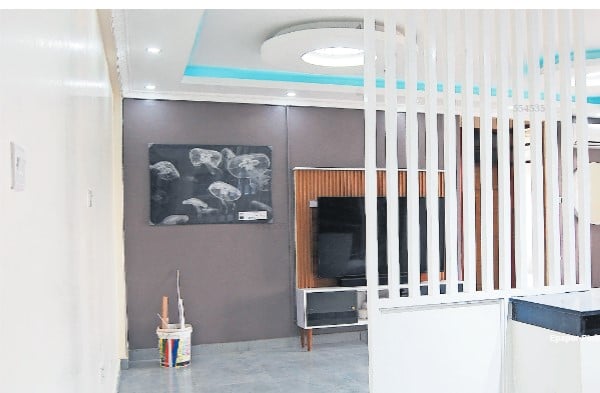Prime
Patrick Obure: Physically impaired, but an able painter

Despite his physical impairement, Patrick Obure has defied many odds including a highly stereotypical society which treats disability as inability and where victims are treated with disdain rather than understanding. His first triumph was in the academic but once he had graduated Obure found he could not get a job.
He interviewed at least three times and was turned away in all cases especially after his impairment was discovered. A graduate of Makerere University his hope was to find a job and assist his family soon after graduating. But for months nothing was coming forth despite the fact that he would apply, be shortlisted, pass initial stages but always found difficulty at face to face interviews.
“I find it difficult to sit and beg for special attention. I believe in hard work but in most cases I am discriminated against because of my disability,” Mr Obure said.
“I was once shortlisted and when I came for the interview, the way the head of the panel asked me questions suggested the job wasn’t for people of disabilities. I was asked to leave. I was harassed. Yet in the advert they had indicated they had equal opportunities.”
But this hasn’t put him down. According to him, the struggle has just started.
“At home you are expected to meet some costs as a brother, a son and nephew. They see you going for interviews but what happens after?” he asks.
In November, Obure decided to look elsewhere. His current job was his first attempt and he has never looked back.
When he first appeared, Mr Tonny Luyima, his immediate supervisor at Freedom City on Entebbe road was not convinced that he would handle menial work, at that, construction considering that he is lame. But to settle the score, he asked him to change the attire he was putting on and start work.
“I first feared but I was like let me try. My experience with him has been the best. He is better than those who are normal 100 per cent. He is committed to his work and you won’t believe what he does when you find him working,” Mr Luyima says of Obure.
But Obure has one confession to make. He had never painted but was convinced he could do anything to live.
“The truth of the matter I didn’t know what to do. I was given a brush and paint and asked to start. I was determined to learn and deep within me I knew I could do it. When he came to supervise me in the evening, he was impressed and decided to retain me,” Obure recalls.
It would turnout a month later that a man who had been turned away on three jobs because of his disability was made a supervisor on a construction site.
“I decided to put down my gentility that am a graduate and started working. I do job search but am not on pressure. If a job comes now, I will first weigh my options and if it’s not favorable, I won’t take it up,” Mr Obure said.
He advises his fellow youth to “learn from where it is dirty than stay home waiting for office job.”
Education Minister Jessica Alupo recognizes that there have been gaps for people with disabilities both in the education system and at employment level but said government was working to addressing the challenges and ensuring policies are implemented.




